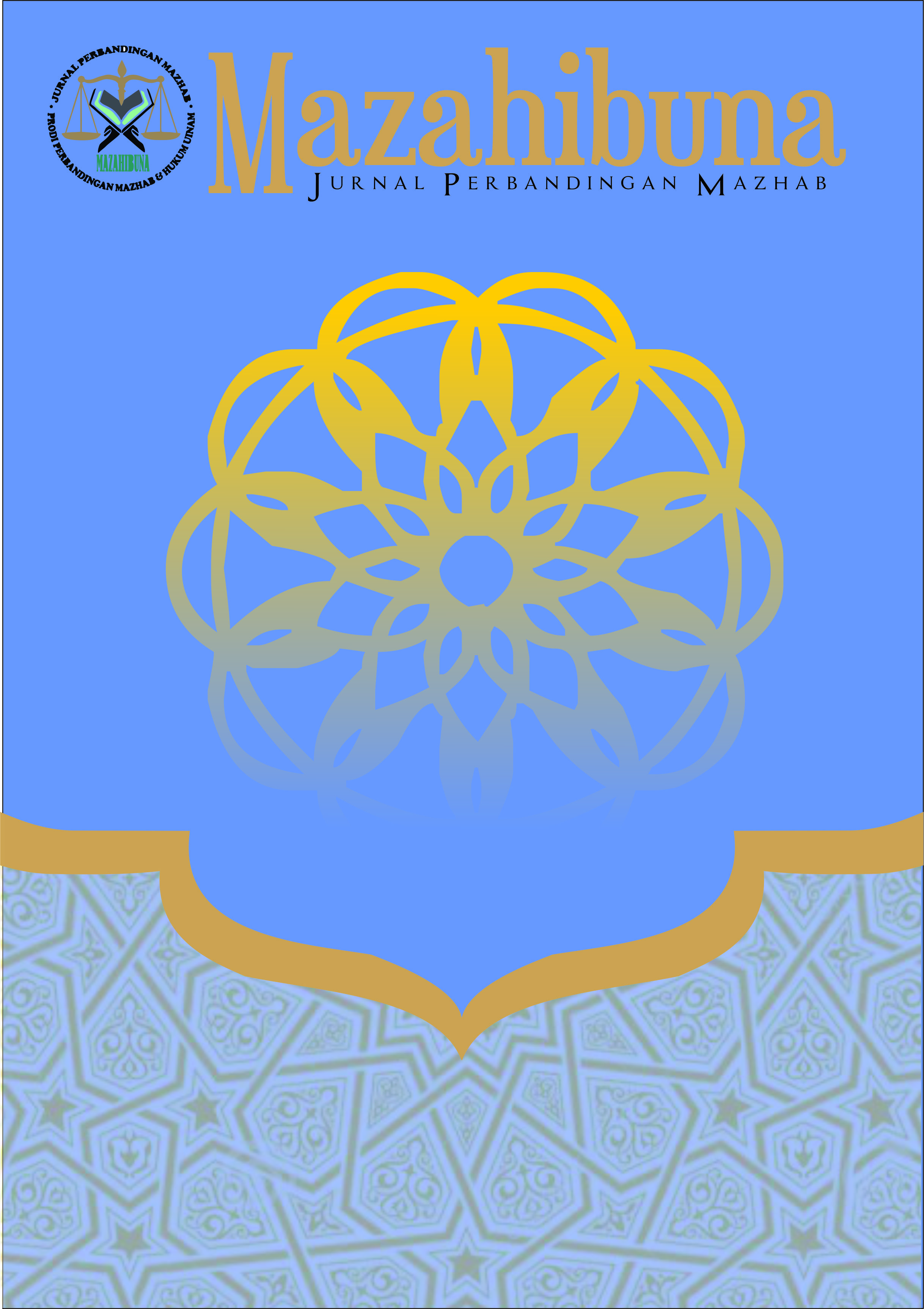Melampaui Batas (Noodewwr Exces) dalam Membela Diri; Studi Perbandingan Antara Hukum Pidana Islam dan Hukum Positif
Abstract
One form of action that gets criminal abolition is an action taken by someone in order to defend themselves from an emergency threat, but the act of self-defense sometimes exceeds the proper limit. This study aims to find out how the comparison between Islamic criminal law and positive law towards actions that exceed the limits (noodweer exces) in self-defense. This research is a qualitative research study using library research. According to the results of this study, it was found that the defense carried out beyond the limit (Noodweer exces), in positive law as stipulated in KUHP 49 paragraph 2, when self-defense that exceeds the limit carried out under conditions of "shaking of the soul", then this can be used as a justification or forgiveness that can eliminate the crime. In contrast to Islamic criminal law, a person must be held responsible for acts of defense that go beyond limits under any circumstances.
Keywords: Self-Defense; Noodweer Exces; Positive Law.
References
DAFTAR PUSTAKA
Al-Syatibi, Abu Ishaq. “Al-Muwafaqat Fi Ushul Al-Syari’ah.” Vol. II (Beirut: Dar Al Kutub Al Ilmiyah, Tt), 2003, 1/290.
Ar-Razi, al-Imam. “Mukhtar Ash-Shihah.” Mesir: Mathba ‘ah Musthafa Ats-Tsani Wa Awladuh, 1995.
Audah, Abdul Qadir. “Al-Tasyri’al-Jinaiy Al-Islamiy.” Jil. I, Beirut: Muassasah Al-Risalah, 1987, 2.
Dewi, Ida Priyanti. “STUDI KASUS PUTUSAN PERKARA NO. 54/PID. B/2013/PN. BDG TENTANG TERDAKWA YANG MELAKUKAN PENGANIAYAAN YANG BERAKIBAT KEMATIAN KORBAN KARENA MEMBELA DIRI.” Fakultas Hukum Unpas, 2018.
Fauzi, Yayan. “Manajemen Pemasaran Perspektif Maqashid Syariah.” Jurnal Ilmiah Ekonomi Islam 1, no. 03 (2015).
Hanafi, Ahmad. “Asas-Asas Hukum Pidana.” Jakarta: PT. Rineka Cipta, 1994.
Haq, Islamul, M Ali Rusdi Bedong, and Abdul Syatar. “Effect Of Young Age in Murder Felony (Comparative Study Between Islamic Jurisprudence and Indonesian Law).” Al-Ahkam: Jurnal Ilmu Syariah Dan Hukum 3, no. 2 (2018).
Indonesia, and Soesilo (R.). Kitab Undang-Undang Hukum Pidana (KUHP): Serta Komentar-Komentarnja Lengkap Pasal Demi Pasal. Politeia, 1976.
Lamintang, P A F. Dasar Dasar Hukum Pidana Di Indonesia. Sinar Grafika, 2019.
Manurung, Eric. “Praktik Penerapan Aturan Pembelaan Diri Dalam Hukum Pidana Oleh.” Www.Hukumonline.Com, October 2017.
Marpaung, Leden. “Asas-Teori-Praktik Hukum Pidana.” Jakarta: Sinar Grafika, 2005.
Muhayati, Muhayati. “Tinjauan Hukum Pidana Islam Terhadap Pembelaan Terpaksa Yang Melampaui Batas (Noodweer Exces) Dalam Tindak Pidana Pembunuhan.” IAIN Walisongo, 2012.
Muslim, Imam. “Shahih Muslim.” Beirut: Darul Fikr. Jilid V, 1992.
Nofrela, Dwi Putri, and Widia Edorita. “Pertanggungjawaban Pidana Terhadap Pelaku Tindak Pidana Pembunuhan Karena Membela Diri Yang Melampaui Batas (Noodweer Excess).” Riau University, 2016.
Syatar, Abdul. “Relevansi Antara Pemidanaan Indonesia Dan Sanksi Pidana Islam.” DIktum 16 (2018): 118–34.
Tabaluyan, Roy Roland. “Pembelaan Terpaksa Yang Melampaui Batas Menurut Pasal 49 Kuhp.” Lex Crimen 4, no. 6 (2015).
Zakariya, Ahmad bin Faris bin, and Abi al-Husain. “Mu’jam Maqayis Al-Lugah, Jilid VI.” Baitur Dar Al-Jil, 1999.

This work is licensed under a Creative Commons Attribution 4.0 International License.
Authors who publish with Mazahibuna: Jurnal Perbandingan Mazhab agree to the following terms:
- Authors retain copyright and grant the Mazahibuna: Jurnal Perbandingan Mazhab right of first publication with the work simultaneously licensed under Creative Commons Attribution License (CC BY 4.0) that allows others to share the work with an acknowledgment of the work's authorship and initial publication in this journal.
- Authors can enter into separate, additional contractual arrangements for the non-exclusive distribution of the published version of the work (e.g., post it to an institutional repository or edit it in a book), with an acknowledgment of its initial publication in this journal.
- Authors are permitted and encouraged to post their work online (e.g., in institutional repositories or on their website) before and during the submission process, as it can lead to productive exchanges, as well as earlier and greater citation of published work.

